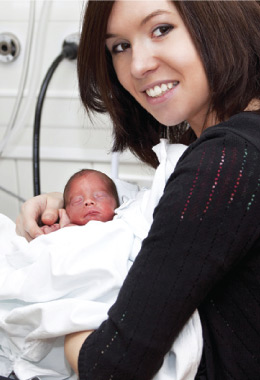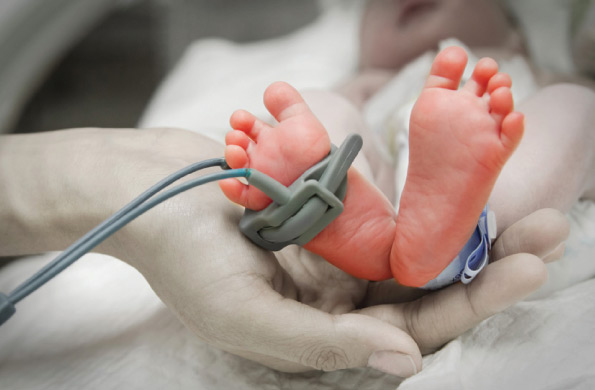A preterm baby refers to a baby that is born before the 37th week of pregnancy (a normal pregnancy lasts for about 40 weeks). Since they are born before they have fully developed, preterm babies (or preemies) are ill-equipped for life outside their mother’s womb. This typically means that preemies will face many life-threatening challenges. The reasons for preterm birth are still not fully understood in half the cases.
Where the risk factors for preterm birth is known, it is often associated with hypertension, diabetes, bleeding due to abnormal positioning of the placenta, infection or inflammation, twin pregnancy and low/high maternal age (below 19 or above 40).
Did you know?
Preventing preterm birth remains a challenge because the causes of preterm births are numerous, complex, and poorly understood. However, pregnant women can take important steps to help reduce their risk of preterm birth and improve their general health. These steps include avoid smoking, alcohol and drugs, regular antenatal care and seeking medical attention for any early signs or symptoms of preterm labour.
Special care needed
Preemies are ‘weaker’ than full-term babies because most of their internal organs are not ready to function on their own yet. In general, the more premature an infant, the higher the risk of complications he will face.
After delivery, they will be placed in the special care nursery (SCN) or if sicker in the neonatal intensive care unit (NICU), which is designed to provide a comfortable and safe environment that provides the preemie with his basic needs of warmth, nutrition, and protection in order to ensure his proper growth and development.
Some of the early complications that may arise include:
- Difficulty regulating their own body warmth – due to their smaller size and lack of glycogen/body fat, most preemies suffer from hypothermia (their body temperature is less than 36°C).
- Infections – their immature defence system and low immunoglobulin levels mean that they have an elevated risk of infections from bacteria/virus in their surroundings.
- Immature nervous system – this can lead to higher rates of apnoea (forget to breathe) and bradycardia. The possibility of bleeding in the ventricles in the brain also increases. Preemies generally lack the reflexes to suckle and swallow, rendering it necessary to feed them either intravenously or via a feeding tube.
- Underdeveloped lungs – a lack of surfactant in his lungs makes it collapse more readily, which causes respiratory distress and he may require oxygen or help with a respirator/ventilator.
- Underdeveloped cardiovascular system – this leads to a higher incidence of persistent ductus arteriosus (PDA), which if large enough may lead to heart failure.
- Underdeveloped gastrointestinal (GI) system – which causes a higher incidence of ileus (lack of normal movements of the gut) and necrotising enterocolitis which in its worst form may require surgery.
- Immature liver – causes more frequent episodes of jaundice.

Possible long term problems
Most preemies will grow and develop just like other full-term babies. However, there are several long-term complications that are more common with preemies, such as:
- Central nervous system – about 10% of preemies (in particular those born earlier than 28 weeks gestation and weighing less than 1000 grams) will experience complications such as cerebral palsy, mental deficiencies, epilepsy, or hydrocephalus following a bleed in the brain.
- Growth – a small number of preemies will fail to thrive, have rickets, and anaemia.
- Cardiovascular system – a persistent ductus arteriosus if causing respiratory and heart problems may require to be ligated surgically.
- Iatrogenic problems – too much exposure to oxygen may lead to diseases of the eye, retinopathy of prematurity (ROP) or chronic lung disease (CLD). Preemies who require an endotracheal tube to assist his breathing may also suffer from subglottic stenosis (a narrowing of the upper airway).
- Psychosocial problems – due to the necessity of separating the preemie from his parents while he is treated at the NICU, this can cause a rift between the mother-child bond, leading to the preemie being unloved, neglected, and even abused. Preemies are also in the high-risk group for sudden infant death syndrome (SIDS).
Preparing yourself
You will have to work very closely with your paediatrician & neonatal nurses in the care of your preemie. The SCN or NICU usually allows parents unlimited access to their preemie to enhance emotional bonding, physical touch and expression of breastmilk for your baby’s nutrition. Prior to their leaving the hospital, you would be encouraged to room in with your baby to do the daily care of your preemie supervised by the neonatal nurse and troubleshooting any potential problems. In a few NICUs the parents are taught the basics of neonatal resuscitation to prepare them for a possible emergency whilst at home with their baby.
The baby will be regularly seen in the paediatric clinic to assess their developmental milestones, growth and updating their immunisation. Your paediatrician may engage the help of other specialists, e.g. developmental paediatrician, physiotherapist, occupational therapist to provide him with the necessary therapy as he grows up.
Last but not least, family support is critical – caring for a preemie is demanding, more so than caring for a ‘normal’ full-term baby.
An educational contribution by Malaysian Paediatric Association.






Comments